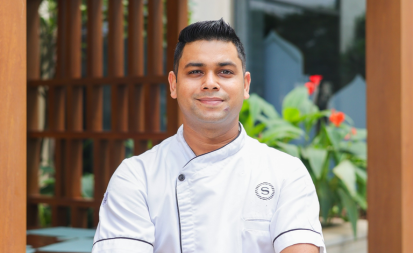Food, Drink and Culture in the Indian hospitality
Mr. Vikas Suri Senior Associate Vice President, Lords Hotels and Resorts “The combination of Food, Drink and Culture in a nutshell is a Gastronomy art that presents the best combination of gourmet food to the guest. We
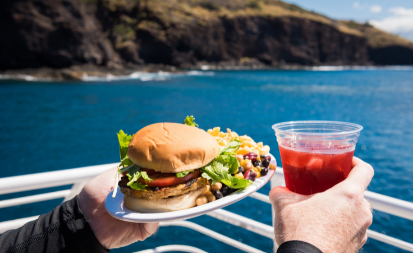

Mr. Vikas Suri
Senior Associate Vice President, Lords Hotels and Resorts
“The combination of Food, Drink and Culture in a nutshell is a Gastronomy art that presents the best combination of gourmet food to the guest. We are masters or rather king of this culinary art. The Chefs of Lords Hotels and Resorts are fully equipped with this art of living and possess the right cooking skills to present the best authentic flavour of the region on a platter. As the saying goes, “the way to a Wo/man’s heart is through his/her stomach” we know the pulse of the region and always try our best to create food that enhances the pleasure and enjoyment of eating and drinking. Such pleasures are foremost to gastronomic tourism which is developing as a subset of cultural tourism where the experience of participating in a different culture is central.
The hospitality industry has a natural role in the provision of these experiences but it also has the opportunity to enhance the enjoyment of such experiences through the provision of relevant information. For this particular reason, we have the Lords Institute of Management, which appropriately offers hospitality education and training that include a gastronomy component in order to give students a greater understanding of the history and culture of food and drink.
The Food Production department of the Hotel and Hospitality Management of the institute is involved in preparation of food. Here, the students are shown a process, in which raw materials are cooked, combined and transformed to make a dish. The creativity of the students is also put to test and freedom to express the same is completely given. The scope of Food Production has been widening at a faster pace in India as well as Abroad; and we tutor our students to become chefs, who will be at par with the best in the industry or aim to be a Michelin Star chef.
Lords Hotels and Resorts is so deeply driven to offer the best to the hospitality industry and community at large that we even offer free education to the underprivileged children, who are deserving and have the gift-of-the-gab for culinary excellence.”
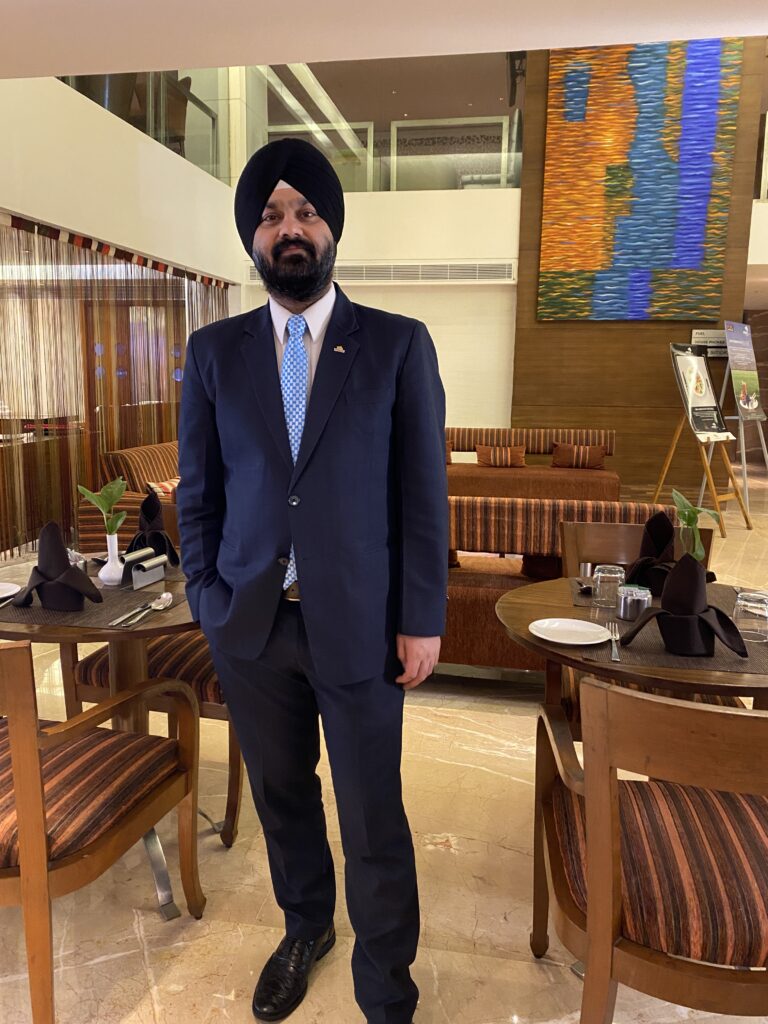
Prithipal Singh
Corporate Director- F&B, Pride Group of Hotels
Food and beverage plays very important role in Indian hospitality culture, thereby creating an identity and status of the hotel brand in the market.
Indian traditional culture has witnessed an increasingly important role in tourism, and food is one of the key elements. Food in India changes with the introduction of different geography, culture, caste, and religion. People love to experiment with different cuisine when they visit different cities be it for business or for leisure. Many guests enjoy indigenous food, particularly items of local or ethnic nature. Furthermore, knowledge of the local, regional, and national cuisine has become an interest for tourists.
Culinary tourism is making a mark in today’s wanderlust-savvy travellers. The concept of consuming local food or drink is considered a first-hand cultural experience, and it is on top of the tourist attraction list. Star ratings are not only to prime of food quality, but it’s also the how the guest is treated, to what extent is the hotel going to ensure the authenticity of cuisine to the guest, etc Experience apart, this also helps in generating good revenue. We at the Pride Hotels have our Executive Chefs and all kitchen staff well-prepped for any chosen occasion or feast. Still, it is ensured that a regional chef is present on special days to take care of the cuisine-led recipe and serve. It gives a top-notch experience to guests. Eg: We plan to have our Chef flown to Pune during a Baisakhi Food Festival while our Chef from Kolkata was flown to Nagpur during the Bengali Food Festival.
Over the last few years, there has been increasing focus on going back to basic / root and revisiting ingredients that are featured in traditional Indian kitchens. As a traditionally proud Indian brand, we at Pride Hotels ensure there’s a mix of homemade delicacy, pickles, chutney, etc as part of our buffet at any given time so that the warmth of “Maa ki rasoi” is not missed surely by our business travellers.
Among other trends, we assume these sure-shot:
Healthy Cuisines:
Nowadays after the recent pandemic, most of the guests are going towards healthy cuisines that provide you with the nutrients you need to sustain your body’s well-being and retain energy.
Drinks are a lifeline for youngsters:
With globalization, urban approach, digital generation, and western culture, consumers have accepted drinking as a part of their life. Celebration is incomplete without cheering some shots together which inaugurated the pubs and bar culture. However, it is interesting to witness the flavours one comes up with. You can commonly find “Paan (Beetle leaves) and Saunf (Fennel seeds)” flavours among other western specials on the current menu.
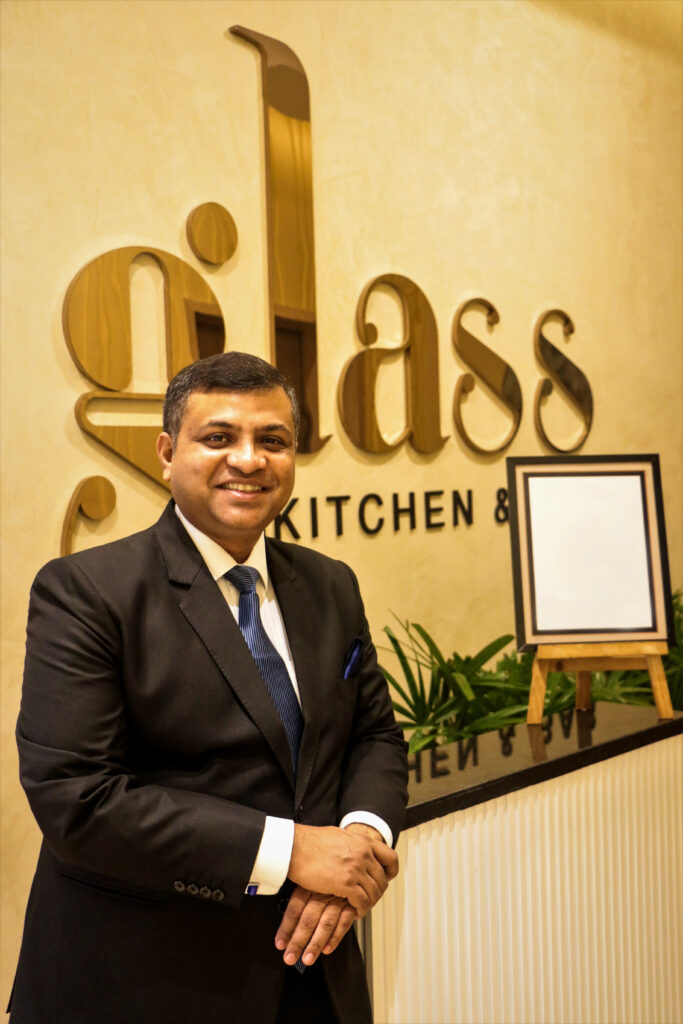
Mr Jaidev Dutta
General Manager, Holiday Inn Bangalore Racecourse
Food is the focal point around which the traditions and culture of a country have evolved. Local tradition is one of the most important factors of food culture which is influencing the hospitality industry. Food and culture are two different worlds that go very well together. When someone grows up in a distinctive culture, it’s bound to influence the lifestyle, including food choices of that person. This means cultural factors remain fundamental in our daily food choice and consumption across the world and accordingly it is true to say that our guests’ food choices have been and always be a result of our cultural determinants. However, modern day food choices are as a result of a number of factors, including culture and thus food choice diversity.
Culture is playing an increasingly important role in tourism, and food is one of the key elements of culture. Our guests enjoy indigenous food, particularly items of local or ethnic nature. Additionally, knowledge of the local, regional, and national cuisine has become an interest or a pull for our guests to come and experience the Indian hospitality. The concept of consuming local food or drink is considered first-hand cultural experience.”

Dinesh Maan
Director of Food and Beverage, Goa Marriott Resort and Spa
The hospitality industry has undergone a complete transformation since the pandemic. For today’s guests, cleanliness and healthful food and drink options are more important than ever because they are health conscious. Guests look for healthier options on both the buffet and a la carte menus, and new restaurant menus have been designed in accordance with the New FSSAI requirements, which mandate the calorific value and, if applicable, an allergen symbol be indicated. As time has gone on, the number of allergic guests has increased. In the beginning, we hardly ever found more than one or two. After the pandemic, many people either became vegans or transitioned to eating plant-based meat. The flavored detox counter, easy-go and flawless cooking counter, herbal tea counter, and much more are being well received by guests at the buffet. Cloud kitchen and Open kitchen concepts are in demand right now. QR Codes and social distancing at restaurants in India will come to an end soon because guests love to socialize with associates. Domestic business is on a boom right now. Individuals are paying the money from their own pocket so they expect the food and service to be top-notch and consistent so more focus has been put on training the associates across brands.

Gladvin Rego
Principal, Lexicon Institute of Hotel Management
“A glance at how the different cultures of India become the vessel, food and drink become the seasonings, and the various festivities and celebrations are the ingredients, which all come together to become the rich experiential dish called India. The perfect illustration to showcase how food and drink form the vital components of the culture is to look at the celebrations and festivities across the country. Food and drinks are served to guests, family, and friends, offered to those less privileged, the entire community to mark significant occasions like birth, death, or to celebrate marriages, festivals and religious ceremonies. In India, the food, beverage, and cultural practices change almost every few miles, and this highlights how food and drinks can serve as a brilliant way to explore, immerse and absorb the culture of India.
The hospitality industry in India draws inspiration from its culture, and it takes pride in the same. The ambience and interior decorations or themes selected by hotels and restaurants, the furnishings, artwork and the food and beverage offerings are just a few aspects used by the Indian hospitality industry to curate an immersive and captivating experience of the Indian culture for their guests. A crucial depiction of culture influencing the food and beverage offerings is the reflection of seasonal changes. One such practice is Ritucharya as mentioned in the sacred and ancient text of Ayurveda which is used as a guideline by many hotels and F&B outlets when crafting their offerings. It allows the industry to share the benefits of cultural practices, offer fresh local produce, adhere to sustainable practices and create an exceptional experience for their guests. For example, the menu offerings during summer will help keep the body hydrated and include locally sourced ingredients like cucumbers, sweet potatoes, watermelons, pomegranates etc. During winters, the food and drinks include local ingredients like sesame seeds, cereals and pulses, honey etc., which help keep you warm.
Indian hospitality is known worldwide for the glimpse of the culture and warmth it offers. Look at the Sanskrit verse taken from the sacred Hindu treatise of the Upanishad, ‘Atithi Devo bhava’, which serves as a guiding principle in the lives of many Indians. The literal
meaning of this verse is “be one for whom the Guest is God” It is the perfect example to illustrate the role of culture in India and how it has set the overall theme for the world of the Indian hospitality industry. The verse was also used as a tagline for a government campaign promoting tourism in the country. Through this campaign, the government sought to establish a positive sentiment regarding tourism in the minds of the citizens and created the perfect hook to not only attract tourists but also set the stage for what a touristic experience offers in India.
In conclusion, I believe it is accurate to say that different food and drinks are not only interlinked with culture but are inseparable in India.”
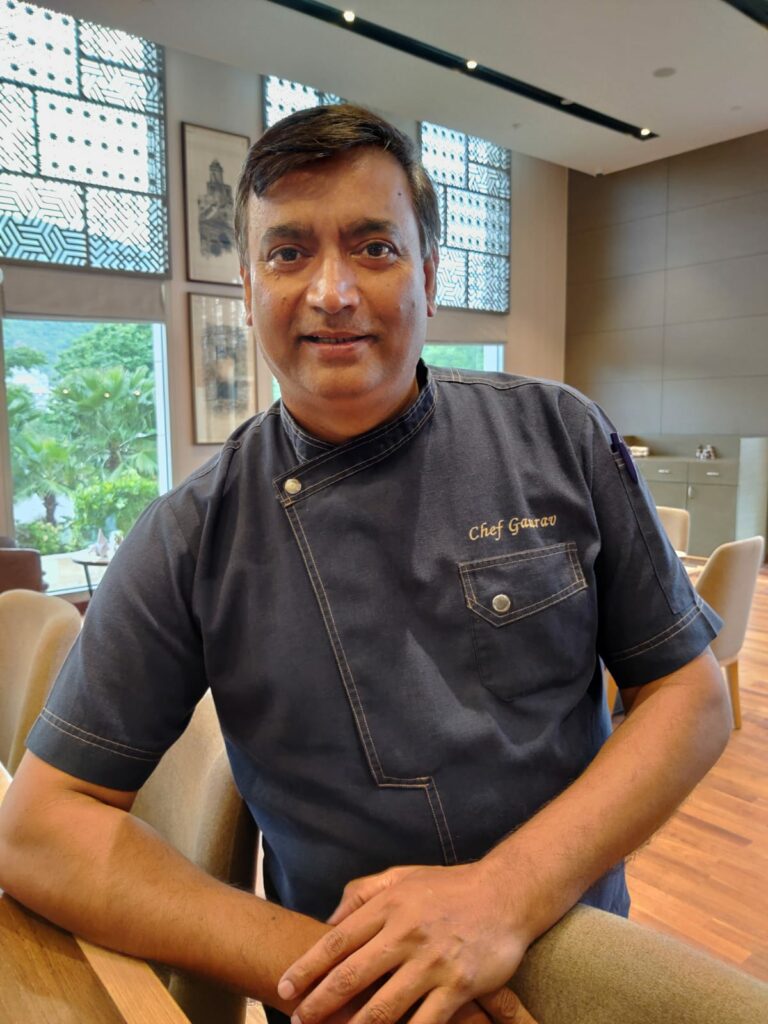
Chef Gaurav Misra
Executive Chef at DoubleTree by Hilton Jaipur Amer
Food and beverages play a noteworthy role in representing any culture. It is usually up to the hospitality industry to speak the region’s culture through food as its communication medium. By focusing on the rich heritage of any region that hospitality establishments are working to represent, the role of the restauranteurs and hoteliers is much simplified in terms of the art of cultural portrayal. However, the art of the accurate execution of this cultural portrayal is the work of highly skilled masters in the business, right from the managers and directors of hotels to the chefs and the staff. Within the hospitality industry itself, every business is shaped around one or more cultures, not only in terms of food but also in terms of design and the way customer experience is planned.
It is of absolute vitality that businesses in the industry stay on top of the cultural trends in food and beverage. This includes updating the design of the menu and the types of food and drinks being served in establishments, and also the trending ways in which hotels can attract customers. Other cultural trends useful to promote a business in hospitality can include trends in marketing, decor and design trends, trends in building a brand image, and much more.
Some changes in the hospitality industry’s cultural demands are – the increasing importance placed on food safety as well as the safety of F&B enterprises post-pandemic, low-waste food businesses, a trend of healthy F&B chains, having menu options of plant-based vegan food, and coming up with more unique takeaway concepts such as drive-through.
All in all, it’s safe to conclude that the entireness of the hospitality industry is dependent to a large extent on being shaped by the food and beverage culture of the region that the hospitality business is choosing to represent, regardless of the location of the establishment.

Ms. Neha Gupta
Founder & Restaurateur, Nineteen78 and Beyond Designs Bistro
Each culture has its own food and drink tradition that is specific to it. Since culture changes from region to region, each region has its own food and drinks heritage. This was based on the climate of the region, and what was grown there. However, in the globalized village where produce from far-flung regions, or even countries, is available in one place, the food and drink cultures have merged and a new composite culture has emerged. At our Beyond Designs Bistro, you can explore fine European cuisine and some Asian fare, whereas at our restaurant, Nineteen78, you get to experience classical dishes with a contemporary twist from across the world, with a smattering of coastal food from Vietnam, Sri Lanka, etc, introducing a bit of the food culture from these countries. It offers familiarity and nostalgia to those who have tasted these cuisines before, and for those who haven’t, it is a novel experience. That’s the magic of food and drinks, they can transport you to the cultural milieu they originate from.

Sandeepraj Salian
Partner – Farmaaish Lounge and Bar Viman nagar
With meetings and classes moving back to offline mode, we can see our industry being optimistic of great sales figures. We are seeing a new pattern where people dine out all through the week instead of just the weekends.
Corporates with the option to work remotely helping with more disposable income make the first choice is to go out with friends and family for drinks and good food.
Even though ordering is easier than ever and something most people are now used to most would agree that nothing beats going to a restaurant to soak up the atmosphere, meet friends and chat up with regulars.

Amit Juneja
CEO of Annakoot – God’s Own Cuisine
“People these days are getting very conscious about their health. Even while eating out, they tend to balance the healthy options while looking for good taste and a nice ambience in the restaurants. A healthy food menu and positive ambience encourage people to visit the restaurants more. Especially in the case of families, if they like a restaurant, it becomes their go-to place for all the gatherings and important events.”

Priykant Gautam
Director of Plaka
“With the increasing exposure to the global culture in the Indian audience, people are fascinated by Western culture, especially its food. All thanks to the pandemic, travelling has halted, so people miss exploring new countries and foods. This is why many people also want to explore “western-themed” restaurants in their areas. With Instagram influencing and blogging coming into existence, people lay more focus on the vibe of the cafe/restaurant. Having said that, we feel that the rich ambience encourages people to visit and their appetite increases – leading to more orders at the restaurant. Fancy drinks and good plating in food are other aspects that catch more eyeballs and make a place famous among youth.”
 English
English French
French German
German Italian
Italian




